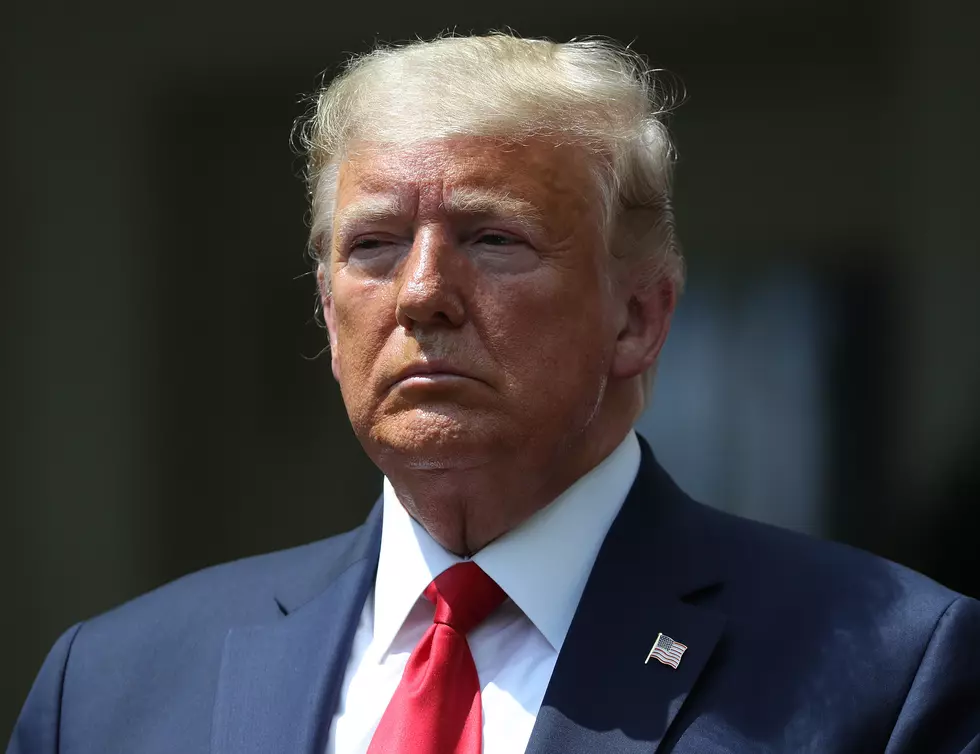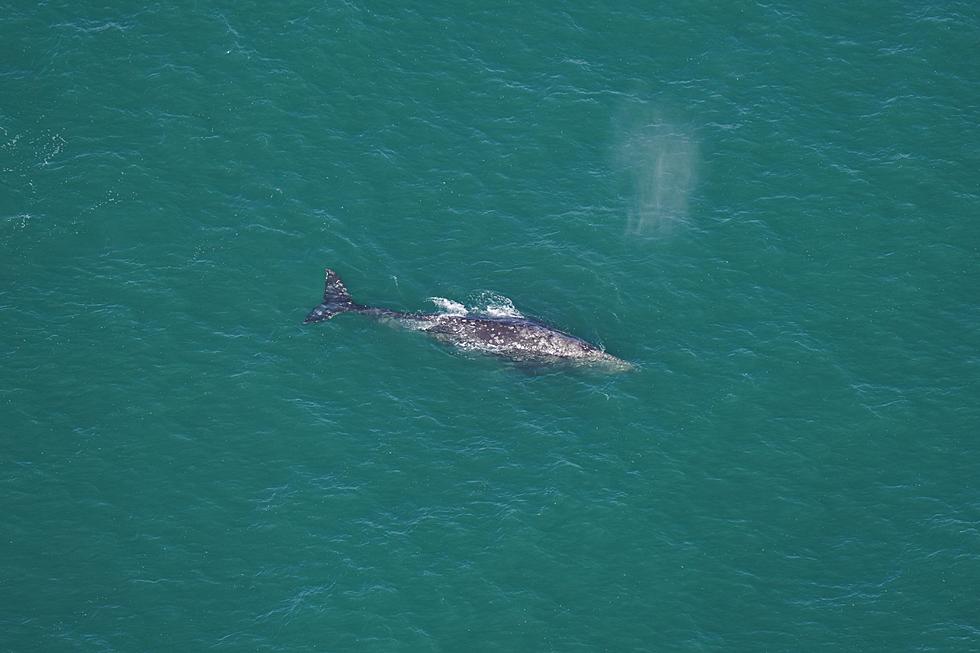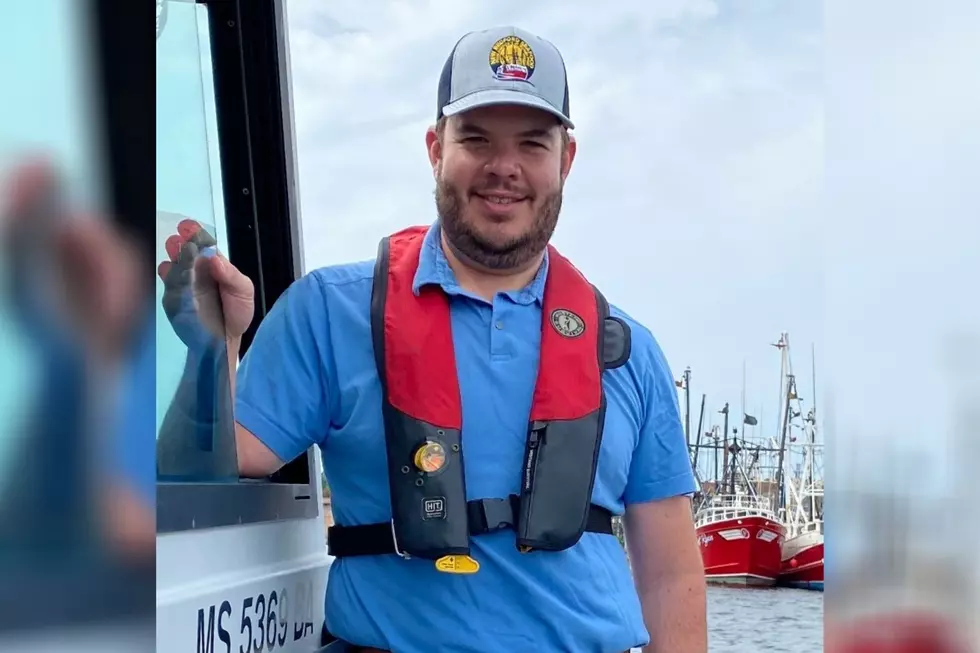
Trump Lifts Commercial Fishing Ban in Protected Area
BANGOR, MAINE — In an announcement cheered by the fishing industry and described as an "attack on our ocean" by opponents, President Donald Trump on Friday reversed a four-year-old decision by President Barack Obama that had abruptly ended commercial fishing within a 5,000-square mile area of the Atlantic Ocean deemed a national marine monument.
Trump's new proclamation will not alter the boundaries of the Northeast Canyons and Seamounts Marine National Monument, which is the size of Connecticut, but amends the commercial fishing restrictions on its use that Obama had put in place using powers granted under the Antiquities Act of 1906. At the time, the Obama administration said the protections would "improve ocean resilience in the face of climate change, and help to sustain the ocean ecosystems and fishing economies in these regions for the long run."
The president announced his decision during a visit to Bangor, Maine on Friday afternoon, where he was joined by former Gov. Paul LePage and fishing industry interests. Obama's 2016 decision was "deeply unfair to Maine lobstermen" and "cost America's fishermen millions of dollars," Trump said.
"We're opening it today," the president said, according to a White House transcript. "We're undoing his executive order."
"You're taking down a 'no fishing' sign and opening up fishing," Interior Secretary David Bernhardt said.
"I love that," Trump responded.
The canyons and seamounts area is on the edge of the continental shelf, and situated about 130 miles southeast of Massachusetts.
The proclamation recognizes the monument area as a haven for seabirds, whales, dolphins, turtles, and migratory fish species such as tuna, billfish, and sharks, but also points to existing fisheries management laws and states "appropriately managed commercial fishing would not put the objects of scientific and historic interest that the monument protects at risk."
Trump said the United States is "blessed with some of the richest ocean resources anywhere in the world," but imports over 85 percent of the fish consumed here. A task force he's forming will identify opportunities to open foreign markets to seafood exports, Trump said, adding that he also plans on "further cracking down on illegal harvested and imported seafood."
"We're going to send our fishermen out there," Trump said. "You're going to go fishing in that area now that you haven't seen for a long time. Lobstermen and seafood producers, I want to just congratulate you."
The Conservation Law Foundation quickly announced it plans to file a lawsuit challenging Trump's amendment to Proclamation 9496 of Sept. 15, 2016.
The monument designation protects "ancient and fragile coral communities, endangered whales, and an abundance of unique and rare marine life," according to the foundation, which intervened in a 2018 federal lawsuit where the court ruled that the Northeast Canyons and Seamounts was created legally.
Foundation president Bradley Campbell said Trump was pandering to fishing interests at a time when people are focused on the COVID-19 pandemic and protests against police brutality and racism.
"Once again, the president is making cynical use of the national crises he has inflamed to pander to the very few New Englanders who may still have faith in his leadership," Campbell said in a statement. "Having ravaged our economy nationally, Trump is now dismantling the few protections now in place to avert the demise of New England's traditional marine fisheries, culture, and economy. We call on the New England delegation and the public to fight this attack on our ocean and our future by all means available."
Maggie Raymond, executive director of the Associated Fisheries of Maine, joined Trump in Maine and said opposition to Obama's declaration has come not only from the fishing industry but also from regional fishery management councils. The councils, she said, argue the fisheries should be managed under the Magnuson-Stevens Fishery Conservation and Management Act and not "outside of the regular management process."
"We don't need the Antiquities Act to be establishing monuments that restrict fishing," Raymond said.
Raymond also told the president that the fishing sector can't afford costs she estimated at $40,000 a year for some vessels associated with an expected New England Fishery Management Council vote in the fall concerning at-sea monitors on vessels during all fishing trips.
"This is simply an expense that we cannot afford at this time, especially on the heels – when we'll be trying to recover from this pandemic, which has had a huge impact on the commercial fishing industry in New England," she said.
Groups pressing to restore fishing stocks have pressed for the use of monitors on vessels to guard against overfishing.
After Raymond expressed her views about the cost of at-sea monitors, Trump asked Bernhardt about the matter and he responded that it was "in process."
"Get it done," the president responded, according to the transcript. "We'll get it done. You're not going to have to – "
At the time of Obama's monument designation in 2016, the Baker administration said it was "deeply disappointed" by the decision and later raised questions about the process while expressing support for the fishing industry and resource protection.
— Michael P. Norton, State House News Service

More From WBSM-AM/AM 1420

![New Bedford Group Creating a Culture of Safety in Fishing [TOWNSQUARE SUNDAY]](http://townsquare.media/site/519/files/2021/07/attachment-fishing-fleet-1-barry-richard-photo.jpg?w=980&q=75)


![Is Vineyard Wind Dead or Just Playing Dead? [OPINION]](http://townsquare.media/site/518/files/2018/04/turbine-project.jpg?w=980&q=75)
![First the Codfather, Now the Rodfather [PHIL-OSOPHY]](http://townsquare.media/site/518/files/2020/09/Fishing-Monitor-Screenshot.jpg?w=980&q=75)
![Dark, as in Lights Out for the Left [OPINION]](http://townsquare.media/site/518/files/2020/08/GettyImages-1268598497.jpg?w=980&q=75)
![Bubba Lecturing Trump Is Laughable [OPINION]](http://townsquare.media/site/518/files/2020/08/GettyImages-1267055814.jpg?w=980&q=75)
![Susan B. Anthony Pardon No Political Ploy [OPINION]](http://townsquare.media/site/518/files/2020/08/GettyImages-1267002834-1.jpg?w=980&q=75)
